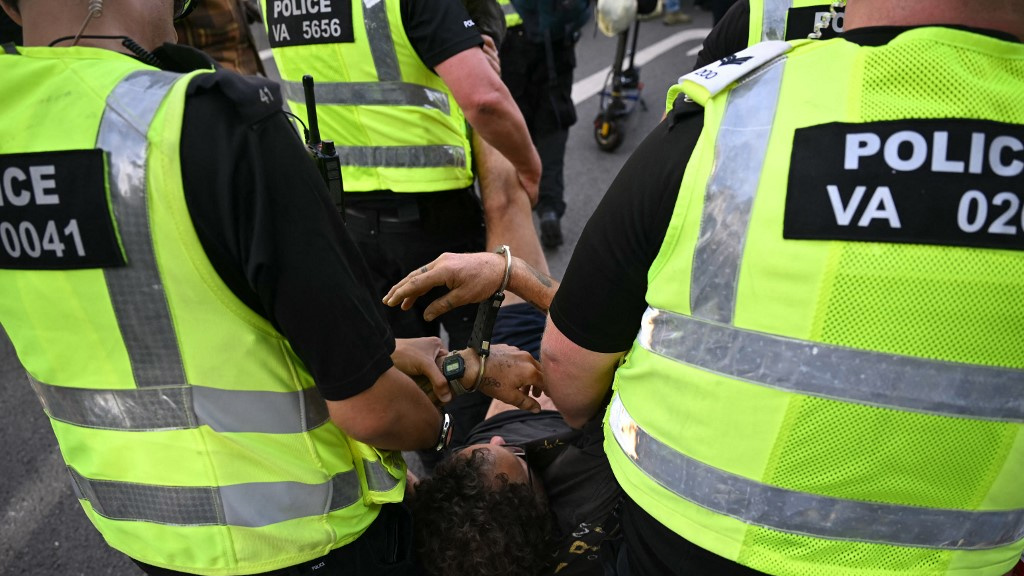Nearly nine months after his abduction by Israeli forces, Dr Hussam Abu Safiya – a highly respected paediatrician from Kamal Adwan Hospital in northern Gaza – is wasting away in an Israeli prison cell.
His lawyer, Gheed Kassem, describes a man who has lost a third of his body weight, whose skin is covered in boils and untreated infections, and who is denied even the most basic access to sunlight, showers and medicine. Allowed only 30 minutes of sun a month, he is starved, tortured and deprived of legal defence.
Abu Safiya’s most recent words, smuggled out through his lawyer, are haunting: “I entered in the name of humanity, and I will leave in the name of humanity. I am the one who was abducted from inside the hospital. We will remain on our land and continue to provide healthcare services to the people, God willing, even from a tent.”
This is the voice not of a criminal, but of a doctor – abducted in his white coat outside a destroyed hospital, ordered to walk towards an Israeli tank, in full view of the world. It was a deliberate spectacle. The message was clear: in Gaza, even medicine is a crime.
Abu Safiya is not alone. Since Israel’s assault began in October 2023, around 1,600 health workers have been killed, and hundreds more have been illegally detained, many of whom have disappeared.
New MEE newsletter: Jerusalem Dispatch
Sign up to get the latest insights and analysis on
Israel-Palestine, alongside Turkey Unpacked and other MEE newsletters
The deliberate targeting of Gaza’s doctors, nurses and paramedics is not collateral damage; it is policy. To dismantle a healthcare system, you must first destroy those who hold it up.
But the war on health workers does not stop at Gaza’s borders. In Britain, a parallel assault is underway – subtler, less bloody, but cut from the same cloth.
In recent weeks, more than two dozen health workers – both practising and retired – have been arrested by UK police. Their supposed crime? Holding up cardboard signs in support of Palestine Action, a direct action group recently proscribed under terrorism legislation. Among those detained was the former editor-in-chief of the British Medical Journal.
Speaking out against war crimes
These individuals are not criminals or terrorists. They are compassionate professionals who have devoted their lives to caring for others, and who stand firmly within a proud tradition: health workers speaking out against war crimes and systemic injustice.
Their arrests mark an unprecedented criminalisation of conscience. Arresting health workers for opposing the ban on Palestine Action is to erase the line between dissent and terrorism.
Health workers, bound by oath and by conscience, must never be silenced in the face of genocide and systemic violence
This is not just about Palestine. It is about the systematic degradation of civil liberties in Britain. A government that brands health workers as extremists for holding cardboard signs is a government that has abandoned the most basic democratic protections.
Today it is Palestine; tomorrow it could be climate protest, trade union action, or academic speech. The message is simple: solidarity itself is suspect.
And all this while the UK government continues its active complicity in Israel’s onslaught. British weapons, parts and diplomatic cover enable the destruction of Gaza’s hospitals and the killing of its health workers. Ministers lecture health workers at home, while helping to silence and starve them abroad. That contradiction shatters any claim to moral credibility.
On 8 September, health workers across the UK answered back. Thousands gathered in vigils and protests outside Royal Colleges in London and other cities, and signed petitions calling for urgent action. Silence is complicity, they noted – and by refusing to speak, our institutions are colluding in war crimes.
Our duty to humanity
Royal Colleges and medical institutions must now decide where they stand. Will they continue to sit on their hands, offering platitudes while their members are arrested in Britain and their colleagues are tortured in Gaza? Or will they act – lobbying government, defending freedom of speech, and demanding the protection of health workers everywhere? Anything less is a betrayal.
The duty of health workers has never been confined to the clinic. From anti-apartheid campaigns in South Africa, to protests against the Iraq War, our profession has always had a responsibility to confront injustice. To heal wounds without naming the forces that cause them is to abandon our vocation.

Dr Abu Safiya symbolised humanity in Gaza. Israel and the West are destroying it
Read More »
The parallel between Abu Safiya’s cell and the police vans of London could not be clearer. In Gaza, doctors are imprisoned for treating children. In Britain, doctors are arrested for demanding an end to the arms sales that kill those children. Both are punished for insisting that medicine cannot be separated from justice.
And yet, despite everything, the voices of health workers have not been silenced. From Abu Safiya’s prison cell to the cardboard signs outside British courts, from vigils at Royal Colleges to petitions signed by thousands, a common message is clear: medicine is humanity, and humanity cannot be criminalised.
The question is whether the rest of our profession will stand with them. Will we allow our colleagues to be dragged through prisons and police vans without protest? Will we allow the government to arm Israel abroad, while criminalising dissent at home? Or will we insist, as Abu Safiya insists, that our duty as health workers is to humanity itself – to preserve life, alleviate suffering and speak truth, even when the cost is high?
Health workers, bound by oath and by conscience, must never be silenced in the face of genocide and systemic violence. Upholding this duty is not only essential to the integrity of our profession; it is essential to humanity itself.
The views expressed in this article belong to the author and do not necessarily reflect the editorial policy of Middle East Eye.

